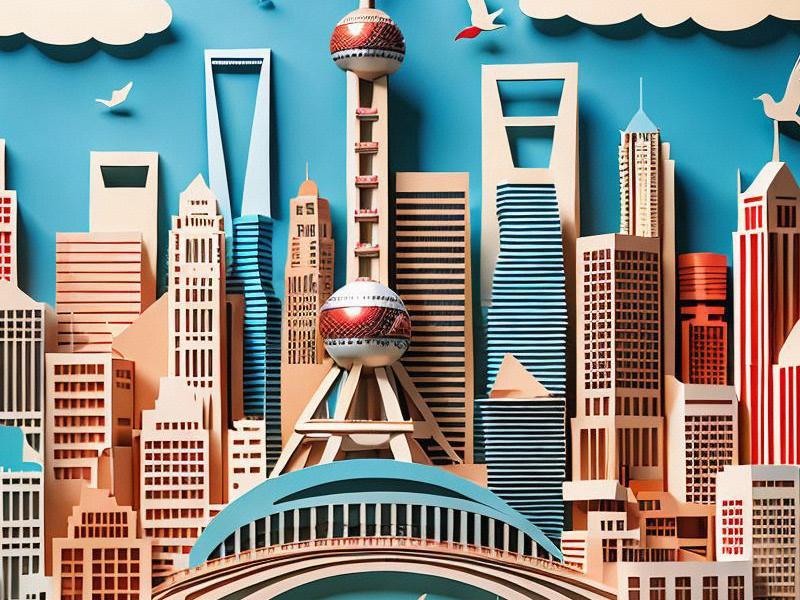Shanghai and Its Surroundings: A Journey Through the Heart of China's Modernization
⏱ 2025-04-25 08:24 🔖 上海龙凤419
📢0℃

Nestled along the eastern coast of China, Shanghai is not just a city; it is a symbol of China's modernization and a global financial hub. With its skyline dominated by the iconic Oriental Pearl Tower and the futuristic Shanghai Tower, the city is a visual representation of China's economic prowess. However, Shanghai's allure extends far beyond its skyscrapers.
The Bund, a historic waterfront area, offers a glimpse into the city's colonial past. Once the financial center of foreign trade in China, the Bund is lined with grandiose buildings that now house banks, hotels, and restaurants. At night, the area comes alive with the glow of neon lights, creating a mesmerizing contrast against the Huangpu River.
Pudong, on the other side of the Huangpu River, is where Shanghai's modern face is most evident. The Lujiazui Financial District is home to some of the world's tallest buildings, including the Shanghai Tower, which stands at 632 meters, making it the tallest building in China and the second-tallest in the world. Pudong also boasts the Jin Mao Tower and the Shanghai World Financial Center, both architectural marvels.
Beyond the city limits, Shanghai's surroundings offer a rich tapestry of cultural heritage and natural beauty. The nearby city of Suzhou, known as the 'Venice of the East,' is famous for its classical Chinese gardens, silk production, and canals. The gardens, such as the Humble Administrator's Garden and the Master of the Nets Garden, are UNESCO World Heritage Sites that showcase the art of Chinese landscaping.
爱上海同城对对碰交友论坛
Nanjing, the capital of Jiangsu Province, is another historical gem. It served as the capital of several Chinese dynasties and is home to the Sun Yat-sen Mausoleum, the Confucius Temple, and the Ming Xiaoling Mausoleum. The city's rich history and cultural landmarks make it a must-visit destination for those interested in China's past.
The Yangtze River Delta region, which includes Shanghai, Suzhou, Nanjing, and Hangzhou, is one of the most economically developed areas in China. This region is known for its high-tech industries, manufacturing, and financial services. The integration of these cities has created a dynamic economic zone that drives China's growth.
Shanghai's role as a global economic hub is further emphasized by the presence of the Shanghai Free-Trade Zone. Established in 2013, the zone aims to promote trade and investment liberalization and facilitation. It has attracted numerous multinational corporations and has become a testing ground for China's economic reforms.
上海龙凤419会所
Culturally, Shanghai is a melting pot of traditions and modernity. The city is known for its vibrant art scene, with galleries and museums showcasing contemporary Chinese art. The Shanghai Museum, located in People's Square, is renowned for its extensive collection of ancient Chinese art, including ceramics, bronzes, and calligraphy.
The city's culinary scene is equally diverse, offering everything from traditional Shanghainese cuisine to international flavors. Dishes such as xiaolongbao (soup dumplings) and shengjianbao (pan-fried dumplings) are local favorites. Shanghai's night markets and food streets provide an authentic taste of the city's culinary culture.
Education is another area where Shanghai excels. The city is home to some of the best universities in China, including Fudan University and Tongji University. These institutions attract students from all over the world and contribute to the city's intellectual and cultural vibrancy.
上海花千坊419
Sustainability is becoming increasingly important in Shanghai's urban planning. The city has implemented various green initiatives, such as the construction of energy-efficient buildings and the development of public transportation systems. The Maglev train, which connects Pudong International Airport to the city center, is a testament to Shanghai's commitment to innovation and sustainability.
Tourism plays a significant role in Shanghai's economy. The city attracts millions of visitors each year, drawn by its historical sites, cultural attractions, and modern amenities. Events such as the Shanghai International Film Festival and the Shanghai Fashion Week further enhance the city's reputation as a global cultural capital.
In conclusion, Shanghai and its surroundings offer a unique blend of history, culture, and modernity. From the historic Bund to the futuristic skyline of Pudong, from the classical gardens of Suzhou to the rich history of Nanjing, the region is a microcosm of China's transformation. As a global economic hub and a cultural powerhouse, Shanghai continues to shape the future of China and inspire the world.
Shanghai's Renaissance: A Journey Through the Modern Metropolis【梧桐树下的红妆与素手:上海知识女性的百年突围】Shanghai Beauties: A Glimpse into the Elegance and Diversity of Shanghai Women《海派佳人:上海美女的百年时尚演变史》Shanghai 4500: Quantum Delta Synergy and the Photonic Civilization MatrixShanghai Beauties: A Journey Through the Beauty of the City and Its People【夜色经济学:上海高端社交场所的百年嬗变】Shanghai 4550: Quantum Apex Aesthetics and the Galactic Femininity Nexus《潮汐之间:上海都市圈的文化褶皱》《鎏金年代:上海娱乐会所的时空折叠》

